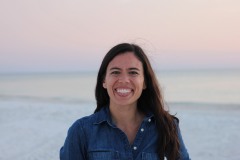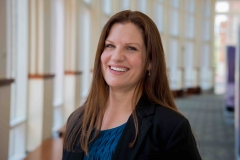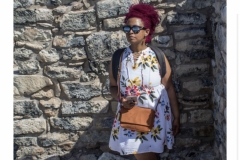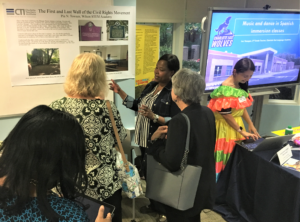Marissa Nesbit, Ph.D., Dance, UNC Charlotte
Traditional educational practices often ask teachers and students to ignore, suppress, and control their bodies in service of abstracted information and meanings encoded in written and verbal forms. While we expect learners to be physically present in classrooms, the pedagogical possibilities for movement and physical sensation are often overlooked at best—and punished at worst. Yet teaching the whole child requires more than just accommodating a need to “wiggle it out” before settling down to the “serious” business of learning. Instead, we must see the body and mind as one integrated whole that experiments, discovers, communicates, and creates through relationships with others.
In this seminar, we will explore philosophies of teaching and learning through embodied practices including movement, discussion, and writing, informed by literature in the philosophy of mind, dance and arts education, somatics, cultural studies, and cognitive science.
We will investigate questions such as:
- How do different cultural and historical perspectives inform how we think about the body?
- What stories have we each developed about our own and others’ bodies, and how do our bodies tell the stories of our identity and history?
- How do our expectations and awareness of our students as embodied beings shape our teaching practices?
- How can attending to the role of the body in teaching and learning promote greater access and equity in education?
Seminar Participants:





















 Home
Home